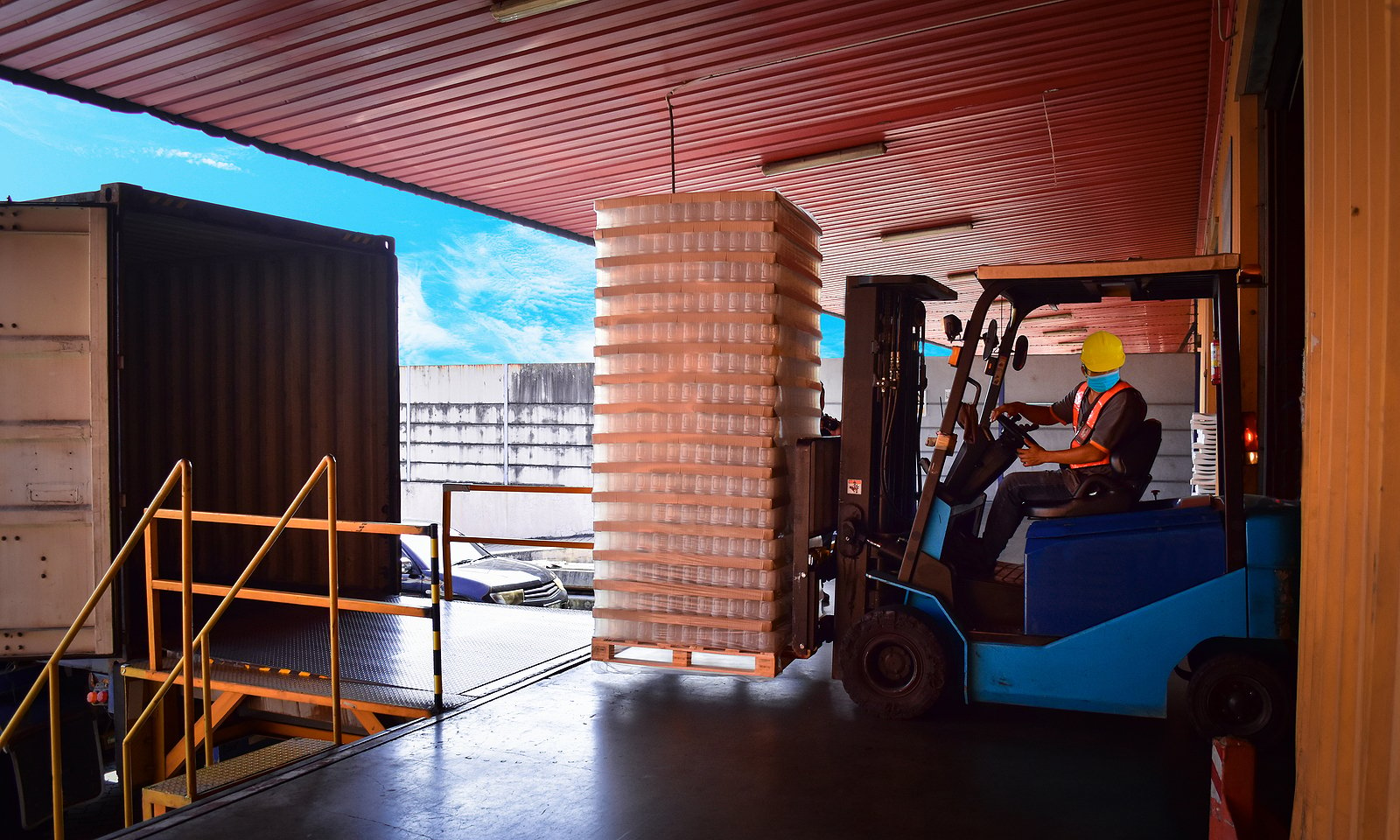
It only takes a little ripple farther up the supply chain to create a big wave at your inbound docks. The driver hits inclement weather or heavy traffic along the route and the delivery is delayed, or the freight was loaded badly and everything shows up unpalletized.
Now, due to no fault of your own, your docks are backed up and you’re facing shipping detention charges. You’ve already been paying your workers to sit around while they wait for the shipment to arrive — now you’ll also be paying them overtime to make up for lost productivity.
While you can’t prevent the upstream ripples, there are ways you can minimize their impact on your distribution center. Let’s take a look at some ways you can reduce your shipping detention charges and avoid overtime pay.
1) Use a Dock Management Software
A dock management system (DMS) is a software platform with visibility at the dock that racks and stacks priorities for you, based on specific metrics and KPIs. As you get closer to your levels of service, the system jumps up individual loads in the system to a higher priority and creates visibility to it. By increasing visibility and knowledge share, everyone is on the same page and has the same priorities.
For example, if a driver comes in late for a product that’s needed right away, the load can be popped to the top of the list — that dock becomes top priority! Everyone knows it and aligns their work priorities around that load.
Eclipse IA uses a DMS that’s customizable to each of our clients. “The dock management system has greatly helped me combat detention charges, and decreased the amount of time it takes to gather information to make a decision,” quotes Kim Mudrak, Client and Warehouse Supervisor in the grocer industry. “In the past I would have to communicate with the guard and Eclipse, and look up information in our receiving program and then also talk to receiving staff. All of that has been completely eliminated. Huge time savings!”
2) Have the Paperwork Ready to Go
The driver can’t leave your facility until he or she has all the paperwork in order and signed. If you don’t have it ready to go ahead of time, a driver could be waiting for hours before they can get back on the road. Simply planning ahead can make a big difference. Make sure you have each piece of paperwork in order and signed off before the driver even arrives at your facility.
3) Implement a Drop and Hook Trailer Program
If you have the space at your facility, a drop and hook trailer program can get drivers in and out in a flash. The driver arrives at your distribution center with a full load, drops the trailer, and picks up an empty trailer that he left behind the previous delivery. This allows you to unload the shipment without rushing or paying overtime, and it gets the driver back on the road fast.
4) Negotiate with Your Freight Broker
Some distribution centers will simply take longer to unload than others. If you know that your facility will take more than the standard two hours, negotiate an arrangement with your freight broker. Often, brokers are willing to accommodate valuable customers with good relationships.
5) Take Care of Your Equipment
If your unloading equipment fails on you, it will immediately put you behind schedule and at risk of detention charges. It’s not unusual for a forklift to break down when you need it most. But you can avoid those unpleasant surprises by maintaining a proper maintenance schedule and checking your equipment on a regular basis.
6) Change Your Unloading Strategy
Your unloading service may be holding you back from greater productivity and efficiency. At Eclipse IA, we use an innovative team-based pay (or pool pay) model that’s been proven to shorten unloading times while boosting performance quality.
The pool pay model inspires teamwork, and a higher level of reliability and tenure. Each person on the team is paid the same wage. As the team becomes more efficient and more productive, the pay rate increases while costs remain static. So, it’s in everyone’s best interest to get the entire team to be as productive as possible.
One of our clients was consistently unable to unload their inbound freight. We were doing another job function for them in the building, and they realized how efficient and accurate our team was. This client asked us to take over their entire set of inbound processes, and since then the facility has kept the yard clean with inbound freight — something they couldn’t do until Eclipse took over the inbound dock.
Eclipse IA helps offset the delays caused by ripples higher up the logistics chain. You may not be able to prevent those ripples coming your way, but our Industrial Athletes can make up the time that was lost before your shipment arrived. As a result, our clients are consistently saving thousands of dollars every month in detention fees. Contact us today.
This article was also published in Logistics Tech Outlook.
